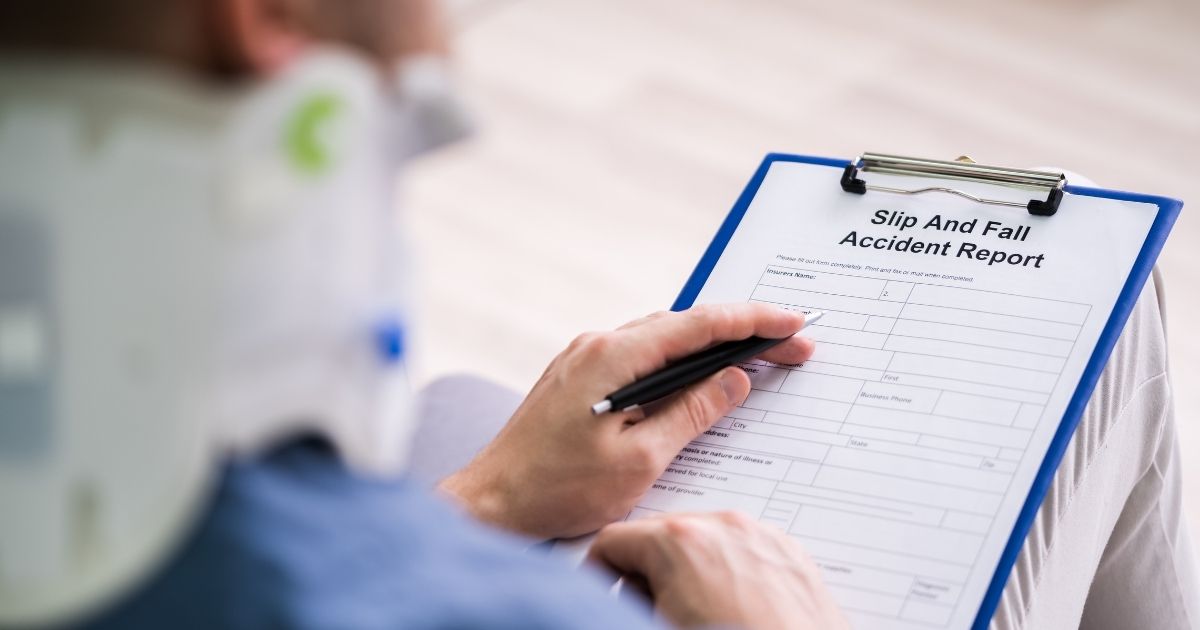If you suffered a slip and fall injury on someone’s property, you would want them to pay for the damage they had caused you. After all, many slip and fall injuries can be severe, leading to overwhelming medical bills and time off of work.
However, some slip and fall injuries do not appear serious, leading one to believe that the accident was minor and does not require medical attention. The delayed injury can cause you to think that it may be too late to collect any compensation, but that is not the case.
You can still file a lawsuit if you suffered a delayed injury from a slip or fall accident. However, you must seek medical attention immediately following the accident and speak with an injury lawyer. Seeing a doctor promptly allows you to get diagnosed quickly and begin treatment, but it also will document your injury. It will also connect the accident and the injury, strengthening your case should you file a lawsuit.
Following an injury, it is possible that the shock or adrenaline you feel masks the pain, sometimes becoming apparent hours or even days after the accident. A few examples of delayed injuries include:
- Head injuries: Perhaps the most common delayed injury, head injuries like concussions sometimes are not immediately felt, causing a delay in symptoms like headaches, dizziness, nausea, or fatigue.
- Fractures: Fractures are especially significant to the elderly and can happen easily, especially hip fractures.
- Ligament damage: Sprains are a common injury following a slip and fall accident, but there may be severe ligament damage if it does not get checked right away.
- Back and neck pain: Back and neck pain can lead to more severe injuries if not treated immediately and can lead to long-lasting effects. Injuries to your neck or spine can cause nerve damage and debilitating injuries that can take months or years to recover.
Slip and Fall Liability
Proving liability is essential in a slip and fall injury case, so hiring a lawyer to help you through the legal process is mandatory. To prove liability in this case, you must show that the property owner did not act reasonably compared to another under similar circumstances. For instance, you must prove that the property owner recognized the dangerous situation that caused your injury and had not resolved the problem in a reasonable time.
This can be said for both private and public property owners. However, public property owners could be government entities, and the case can get complicated quickly.
Pennsylvania Slip and Fall Laws
Two laws in Pennsylvania are essential to know concerning slip and fall accidents: the statute of limitations and the modified comparative negligence rule:
- Statute of limitations: The statute of limitations is the time limit you have to file a lawsuit with the civil court system. Pennsylvania’s statute of limitations in a personal injury case such as a slip and fall accident is two years from the accident date. Failing to meet the statute will likely end in your case being dismissed.
- Modified comparative negligence: Comparative negligence means that, although the plaintiff argues that the defendant acted negligently and caused the plaintiff’s injury, the plaintiff also shares some responsibility. This amount of responsibility the plaintiff may share is then subtracted from their total compensation. For instance, if the plaintiff is found to be 20 percent at fault for their injury, they are awarded just 80 percent of the final amount. In Pennsylvania, the modified comparative rule means that if the plaintiff is found to share over 50 percent of the responsibility, then they would likely receive no award.
Philadelphia Slip and Fall Lawyers at McCann Dillon Jaffe & Lamb, LLC Help Clients With Delayed Slip and Fall Injuries
Following a slip and fall accident, seeking medical attention immediately is essential. Speak with our Philadelphia slip and fall lawyers at McCann Dillon Jaffe & Lamb, LLC today. Call us at 215-569-8488 or fill out our online form for a free consultation. Located in Philadelphia and Abington, Pennsylvania, as well as Wilmington, Delaware, we serve clients in the surrounding areas.


